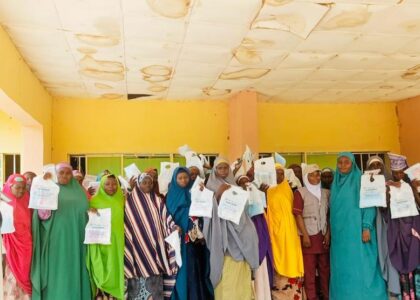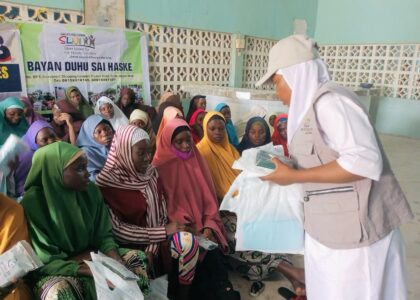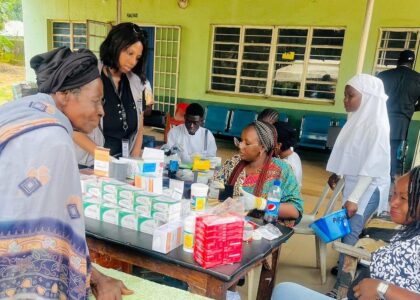
In Nigeria and across sub-Saharan Africa, the fight against mother-to-child transmission (MTCT) of HIV is an ongoing battle, with statistics revealing the urgency of addressing this critical issue. According to the Joint United Nations Programme on HIV/AIDS (UNAIDS), over 180,000 children were newly infected with HIV in 2017, and a staggering 88% of these cases occurred in sub-Saharan Africa. Despite Nigeria’s relatively low HIV prevalence, it boasts the unfortunate distinction of having the highest rate of MTCT globally, with 37,000 children newly infected in 2017.
HIV Testing: A Crucial Step in Prevention
Central to the elimination of MTCT is HIV testing during pregnancy. The risk of MTCT is significantly reduced when women are diagnosed early in their pregnancy. Without this crucial step, individuals living with HIV may unknowingly transmit the infection, leading to a transmission risk ranging from 15 to 45%. However, with proper diagnosis and treatment, this risk can be reduced to less than 5%, and in developed regions like Europe and the United States, it has been brought down to less than 1%.
Challenges in HIV Testing Coverage
Despite the critical role of HIV testing, many pregnant women in Nigeria face barriers to access. Factors such as inadequate resources, stigma, discrimination, healthcare worker attitudes and skills, and testing strategy deficiencies contribute to low coverage of HIV testing during pregnancy. Before the implementation of the ‘opt-out’ strategy in Nigeria, less than 33% of pregnant women were tested for HIV, and only half of those attending antenatal care (ANC) were tested.
The ‘Opt-Out’ Approach: A Game-Changer
Recognizing the urgent need for widespread testing, Nigeria implemented the ‘opt-out’ strategy, making HIV testing a routine part of ANC with the option for women to decline actively. This strategy gained high acceptability, especially in Nigeria, significantly improving testing rates. Before the ‘opt-out’ strategy, only 33% of pregnant women were tested, and just half of those attending ANC underwent HIV testing. The ‘opt-out’ approach aimed to rapidly scale up ANC coverage and saw increased funding, expanded PMTCT services, private sector engagement, decentralization, and integration of care.
Progress and Challenges
While the ‘opt-out’ strategy marked a crucial turning point, challenges persist. According to the National Agency for the Control of AIDS, only 35.1% of health facilities provided HIV testing, and 18% had sufficient test kit stock within the last three months. Aiming for 95% coverage by 2021, the new national HIV/AIDS strategic plan emphasizes the importance of population-level data.
Assessing Progress with MICS5
To understand the impact of the ‘opt-out’ strategy, we turn to the Multiple Indicator Cluster Survey 5 (MICS5) conducted between 2016 and 2017. By comparing rates of HIV testing among women who gave birth in 2013 and 2017, we gauge progress. Additionally, we estimate HIV testing coverage during pregnancy among women attending ANC, providing insights into opportunities and challenges for scaling testing uptake in Nigeria.
Conclusion: A Call to Action
As we navigate the complex landscape of HIV and pregnancy, the strides made through the ‘opt-out’ strategy underscore the importance of continuous evaluation and adaptation. With a commitment to achieving the 95% testing coverage target by 2021, Nigeria stands at a pivotal moment in its fight against MTCT. By leveraging data, scaling up resources, and fostering community engagement, we can empower mothers, protect futures, and collectively work towards an HIV-free generation in Nigeria and beyond.





